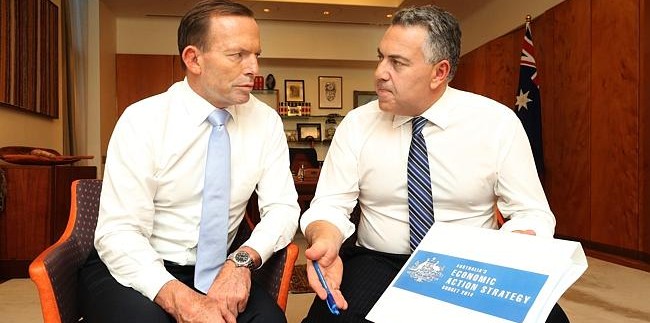Tech Start-ups Cheated by a Budget Without Vision

Treasurer Joe Hockey spoke about “firing up the economy”, and yet the budget he outlined was uninspiring and disappointing for entrepreneurs.
There were some positive measures announced in tonight’s budget, particularly the $20 billion medical research endowment, which will spur innovation, research and hopefully start-ups in the medical technology space. However, most of the other policy announcements made on Tuesday night have a net negative effect on small innovative start-ups in Australia. This is a massive disappointment and a missed opportunity for our nation. Now more than ever we should be developing a local ecosystem of start-ups and venture funds and desperately need strong leadership. As an entrepreneur, there were a number of key policy areas that I see affecting the start-up space in Australia. For example, there was a small reduction announced, in absolute terms, to the amount that can be claimed for an research and development tax rebate,which is accessed by many early stage technology companies who typically incur up front R&D expenses to get the business off the ground. The R&D rebate provides entrepreneurs with cash rebates on approved R&D activities and these cuts could harm some companies in the short term and provide a disincentive for those looking to create a business in the years to come.
$361m loss
The announcement of an Entrepreneurs’ Infrastructure Programme to simplify the numerous grants and programs on offer by the Federal Government was funded to the tune of $484 million over five years. However, digging a little deeper and, given the axing of a number of other programs also accessed by start-ups and venture capitalists that cuts $845 million over five years, the net effect to the ecosystem is a loss of $361 million. The start-up space has the potential to offset some of the decline or slow down in other sectors. Australia is perfectly positioned to capitalise on the rapid growth in internet connectivity in Asia but we need to develop and retain key talent and fund their ideas.
The start-up community is still very nascent in Australia and my fear is that by further reducing the support given to the community we might kill the ecosystem just as it is starting to take flight. Commercialisation Australia too has been axed. CA has given start-ups access to capital but more importantly case officers that connect inexperienced entrepreneurs who have robust ideas, with more mature mentors, domain professionals and in some case angels and investors. I’m hoping that the Entrepreneurs’ Infrastructure Programme will somehow maintain this critical service. While I did have reservations about the effectiveness of the Innovation Investment Fund, it is sad to see this money being taken out of the system altogether. It risks potentially also sucking out of the ecosystem the 50 per cent matching funds that came from the private sector, in order to be awarded an IIF.
Silver lining
It is not all bad news for start-ups though. I was pleased to see that the government not only ignored the National Commission of Audit’s recommendation to scrap the Export Market Development grant but also increased funding of the program by $50 million. As an entrepreneur who has received funding under this grant I can attest first hand to the help it has given my start-up. The funding has helped us open sales offices overseas, in the United States and in Singapore, in only our second year of the grant.
This has helped, us generate export revenue creating more employment opportunities in Australia and bringing foreign money into the country. In the budget I was looking for signals from the Treasurer that the government was serious about driving innovation in our economy starting with the earliest stage start-ups and businesses. I was looking for inspiration and for the Government to embrace some of the best policies from around the world that have helped create other innovative tech hubs in San Francisco, Tel Aviv and Singapore. I was looking for a reversal of legislation introduced by the Labor party in 2009 that makes it almost impossible to issue share options to employees. I was looking for the government to offer tax incentives to investors who fund the earliest stage, highest risk and often most innovative early stage technology companies to drive funding and interest in the space. These policies weren’t apparent in the budget but are deserving of much needed debate and attention by the Australian public.
**Original Article by Jonathan Barouch- http://www.brw.com.au/p/tech-gadgets/tech_start_ups_short_changed_by_P3sNQHDVai5ZEUVnO7xEAL

